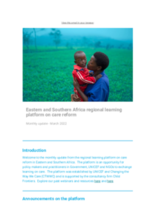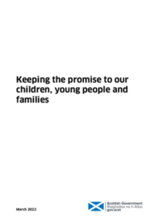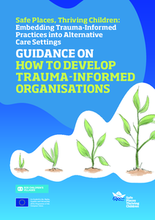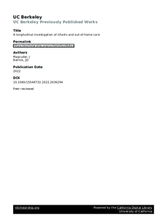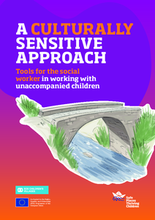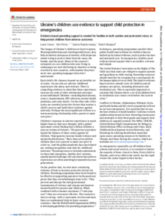Displaying 181 - 190 of 1025
As part of the “Safe Places, Thriving Children” project, SOS Children’s Villages has developed a series of six e-learning modules which aim at increasing participants’ understanding of trauma and its effects on children and young people, and provide guidance on how to act in a more trauma-sensitive way when working with children, young people and families.
This is the first monthly update of the Eastern and Southern Africa Regional Learning Platform published in March 2022.
The Scottish Government Implementation Plan sets out the Government of Scotland's actions and commitments to Keep the Promise for care experienced children, young people and their families. The plan lays out what the government will do to Keep The Promise by 2030. The goal is for every child in Scotland to grow up loved, safe and respected so that they realise their full potential.
The Guidance Document was developed to support organisations taking part in the Organisational Development workshops for the project. Through the workshops, we aim to establish a trauma-informed culture in organisations that care for and support children and young adults in alternative care.
This study offers a longitudinal examination of a population-based cohort of infants born in 2001 who entered care during the first year of life and who were followed through multiple care episodes until age 18. Findings suggest that using single, first episode data overstates the proportion of children who successfully reunify and understates the proportion of children who are adopted, return to care, or live with guardians.
This resource was developed by SOS Children's Villages Belgium as an annex to the Practice Guidance. This tool provides guidance for social workers working with unaccompanied refugee and migrant children on how to use trauma-informed practices in a culturally sensitive way.
This systematic review aims to examine the effectiveness of interventions that seek to improve outcomes of grandchildren raised by grandparents.
This opinion piece published in the BMJ, argues that evidence based parenting support is needed for families in both sudden and protracted crises, to help protect children from adverse outcomes. The authors say that in emergencies, families need evidence based support that is accessible, relevant, and simple. The parenting programmes prevent and disrupt the intergenerational transmission of violence and trauma and improve mental health for parents and children. When combined with economic assistance (“‘cash plus care”) they are even more effective.
These are the closing remarks of Ilze Brands Kehris, Assistant Secretary-General for Human Rights, at a side event in the context of the 66th session of the Commission on the Status of Women.
These opening remarks were delivered by Michelle Bachelet, UN High Commissioner for Human Rights, at 49th session of the Human Rights Council 9 March 2022. The focus of her remarks was on the alarming numbers of children who are torn apart from their families due to a number of reasons.

